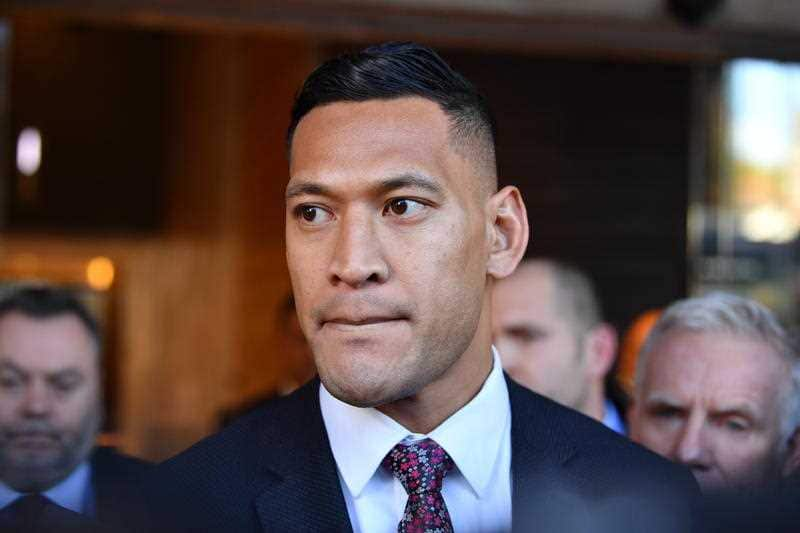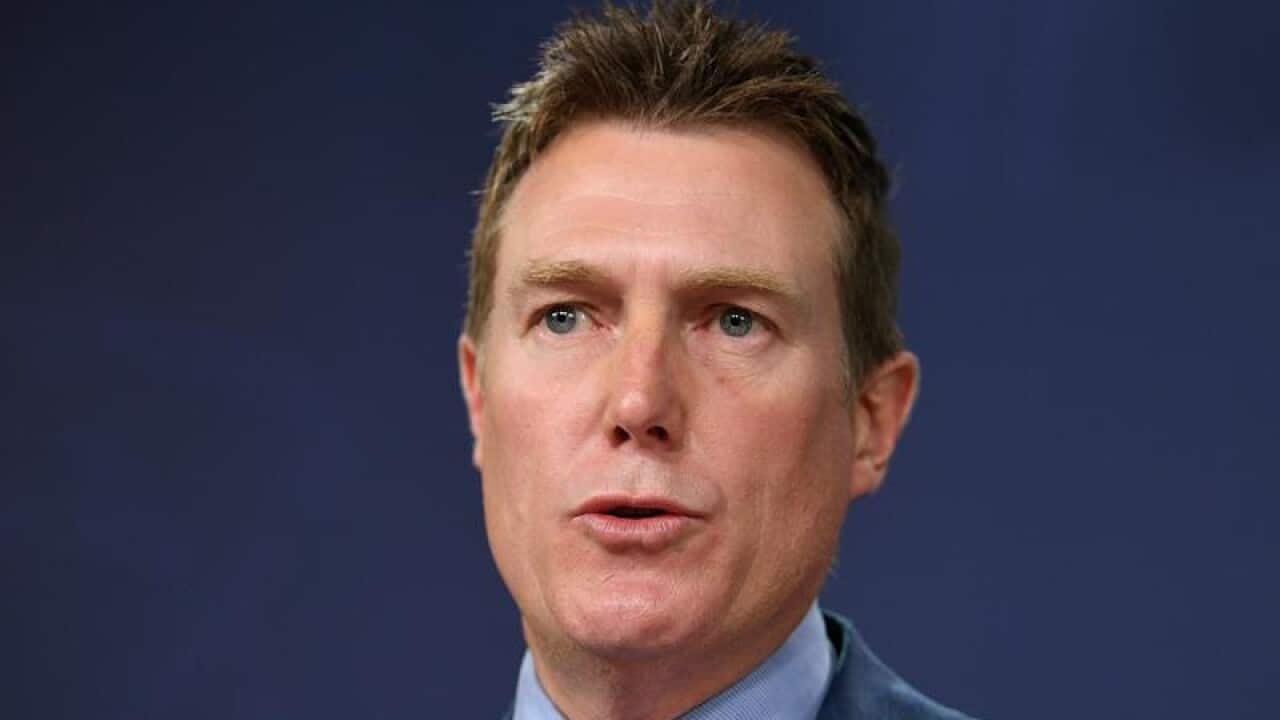Former South Australian Baptist pastor David Smith sits in his Adelaide living room looking back on the 22-year church career he left in 2018.
For decades he was an avowed conservative.
But his growing support for LGBTQI+ rights and inclusivity in the church - a view that solidified during the 2017 same-sex marriage plebiscite - butted against the firm view of his employer.

Former South Australian Baptist pastor David Smith quit over his support for LGBTQI+ issues. Source: SBS News
Baptist Churches of SA stood firm on marriage being between a man and a woman.
“It became quite an issue of [social] justice for me,” the 57-year-old told SBS News.
“As I started to make these views public and clear, it became obvious it was incompatible with the views of the baptist church I was part of, and also with our denomination as a whole.”
He resigned as both a local church pastor and as regional minister for rural churches, convinced he now had no future in the profession, saying he "didn't see any future" for himself in the church.

David Smith in 2010. He said his growing support for LGBTQI+ rights and inclusivity in the church butted against the view of his employer. Source: SBS News
Most explicitly, he said, the Baptist Churches of South Australia’s assembly board “refused to allow him” to accept a position he was well in line for.
“Even though I was told I had the skills for it and would be good at it, the assembly board communicated to me that, because of my views, the church as a whole wouldn’t be able to cope with that, so the conversation about taking that job was ended.”
Churches excluded from bill
Mr Smith is sharing his story following the release of a draft religious discrimination bill in Australia, which has renewed the focus on potential discrimination claims in the workplace.
The draft laws were released by Attorney-General Christian Porter last month, with religious bodies including churches currently excluded from the bill.
Baptist Churches of SA defended its position over Mr Smith’s departure, saying it was his choice to resign, that he was not removed from his existing role, and that he remains an accredited pastor.

David Smith preaching at Port Lincoln 2011. Source: Supplied
Reverend Mike Mills, Mr Smith’s former line manager who had praised his aptitude for the position, confirmed he was the one who approached the assembly board with his concerns, saying the church should have a right to employ staff who share its values.
He points to what he called Mr Smith's "aggressive stance in fully affirming his support of same-sex marriage" - and says that "made it difficult for the Assembly to see how he could serve our churches well".
"Surely we have a right to employ staff who share our values."
Surely we have a right to employ staff who share our values. - Reverend Mike Mills
“For us, the ‘religious freedom debate’ is not one about the right to dominate a conversation or to impose on others one’s own framework, but the right to hold a world view (religious or not) and the freedom to live according to that world view. The limit to this is, of course, that the practice and expression of one’s world view cannot be allowed to be harmful to others.”

David Smith said he resigned because he ‘didn’t see any future for himself in the church’. Source: SBS News
Having “moved on” and returning to his previous job as a school teacher, Mr Smith says he “does not have the stomach” to launch any legal proceedings.
Regardless, the draft Religious Discrimination Bill would appear to back Baptist Churches of South Australia’s views regarding its employees.
Overriding all other sections in the bill, Section 10 states: “A religious body does not discriminate against a person … by engaging, in good faith, in conduct that may reasonably be regarded as being in accordance with the doctrines, tenets, beliefs or teachings of the religion…”
Mr Smith wants the exception for religious bodies to be removed from any final legislation.

David Smith advising Zambian priests in 2013. Source: Supplied
“Religious people should not be given more legislation that allows them to use the Bible as a weapon, to hurt people,” he said.
'Conservative Christians under pressure'
On the other side of the religious freedoms debate, a conservative Christian law firm claims there are multiple cases of conservative Christians feeling under pressure in the workplace.
John Steenhof of the Human Rights Law Alliance, a firm closely aligned with the Australian Christian Lobby, is a prominent voice in the debate.
He says there are claims at workplaces not shielded by such exemptions that some employees are feeling pressured due to their conservative religious views.

John Steenhof of the Human Rights Law Alliance believes the workplace is a hostile place for many Christians. Source: SBS News
“The workplace is increasingly a hostile place for Christians,” he said.
The workplace is increasingly a hostile place for Christians. - John Steenhof, Human Rights Law Alliance
The lawyer cited an example of a pharmacist in Australia who chose to quit her profession entirely rather than act against her conscience, after refusing to give a female hormone prescription to a transgender person.
“She has deeply-held beliefs about the binary nature of sex and gender, that are taught by her religion, and she feels that her conscience wouldn’t allow her to give female hormones to a biological male, or vice versa,” Mr Steenhof said.
He said the pharmacist is not considering pursuing a case under a future Religious Discrimination Act.
Highlighting the legal complexities, Mr Steenhof said while a future bill may protect health professionals who choose to exercise their consciences, those protections are severely limited.
Discrimination law researcher Liam Elphick, of the University of Western Australia Law School, believes the exceptions are limited and in the case of the pharmacist, the employee would arguably have a case against her employer.
“In a situation where a pharmacy tells its pharmacist to serve the transgender person and the pharmacist then refuses, the pharmacy itself could be sued by … the pharmacist,” he said.
The highest-profile case, now before the courts, is that of Israel Folau, whose contract was terminated by Rugby Australia in May after he said “hell awaits” people who are homosexual.
Lawyer Mr Steenhof says he knows of individuals defending the star sportsman “at the watercooler” in their jobs who have felt the impact.

Israel Folau arrives for a conciliation hearing at the Fair Work Commission in Sydney, Friday, 28 June, 2019 Source: AAP
“In one case that resulted in a complaint to HR, and that resulted in the person being brought up for disciplinary proceedings on the basis that their views made other people feel unsafe in the workplace,” he said.
Workplace inclusion policies
IBM Australia is one major corporate with diversity and inclusion policies that accommodate both multi-faith and LGBTIQ+ employees.
It has 'reflection rooms', the option of swapping Australian holidays for religious ones, and is the major sponsor of the forthcoming Victorian Pride Centre in St Kilda, Melbourne, a hub for LGBTIQ groups and organisations.
IBM’s diversity and inclusion manager Keri Le Page wouldn’t comment directly on the Religious Discrimination Bill, or the Israel Folau case, but said while employees are encouraged to “be who they are” there is a line of offensive comments that can't be crossed.




